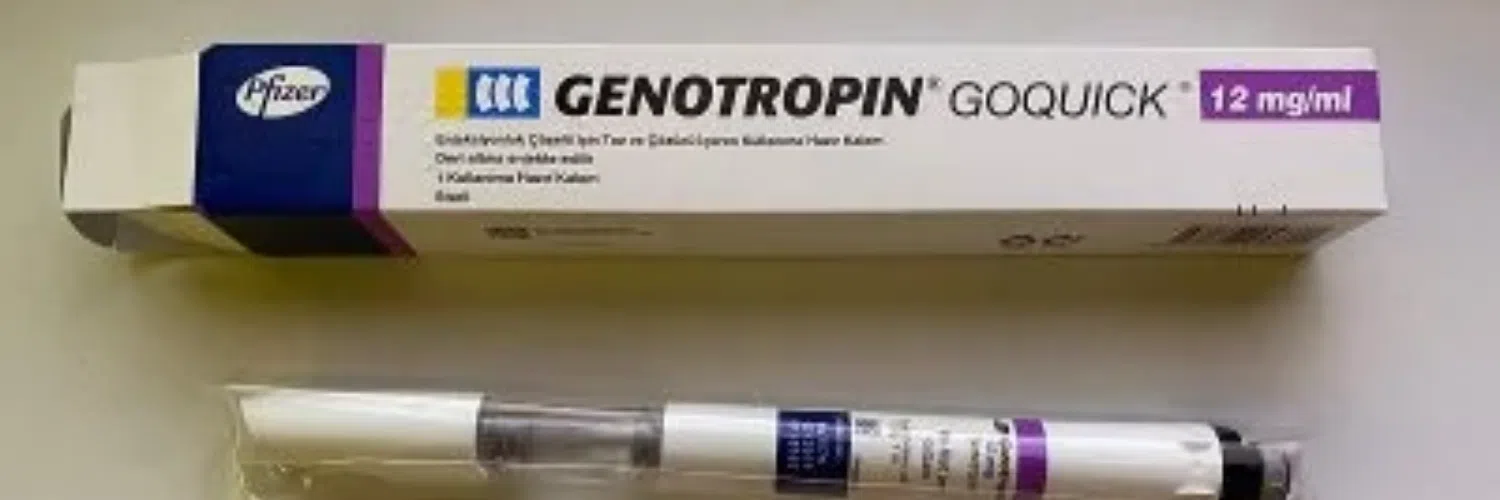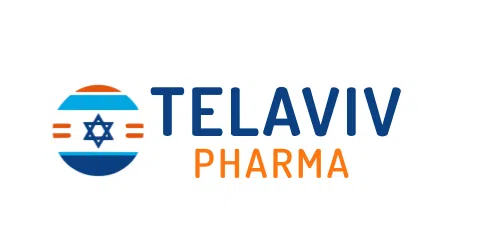
Norditropin vs Genotropin: What’s Better?
Last Updated on November 27, 2025
Norditropin and Genotropin are two well-known brands of human growth hormone (HGH) used in various medical treatments, primarily for growth hormone deficiency in children and adults. Both drugs function similarly by providing the body with recombinant growth hormone, which is vital for growth, metabolism, and overall health. However, their formulations, delivery mechanisms, and specific applications can differ, influencing a patient’s choice between the two options.
When considering these treatments, it’s essential to understand their unique characteristics. This knowledge can help patients and healthcare providers make informed decisions about which option may be more suitable for individual circumstances. To highlight these distinctions, we can consider a few key differences.
Key Differences Between Norditropin And Genotropin
Contents
- Key Differences Between Norditropin And Genotropin
- Detailed Comparison Of Norditropin And Genotropin: Key Insights
- Choosing The Right Treatment: Norditropin Or Genotropin?
- Key Takeaways: Making Informed Decisions Between Norditropin And Genotropin
- Final Thoughts On Norditropin Versus Genotropin
- Frequently Asked Questions
- Formulation: Norditropin is available in pre-filled pens, while Genotropin is available in both reconstituted vials and pre-filled pens.
- Dosage Flexibility: Norditropin allows for flexible dosing, while Genotropin has fixed dosing increments.
- Storage Requirements: Norditropin can be stored at room temperature for up to 3 weeks, contrasting with Genotropin, which requires refrigeration.
- Injection Technique: Norditropin offers a more user-friendly injection pen design, simplifying self-administered doses.
- Patient Support Programs: Both Norditropin and Genotropin provide patient support; however, the specifics of these programs may vary.
- Availability: Depending on geographical location, the availability of each brand may differ.
- Cost Considerations: Prices may vary significantly between Norditropin and Genotropin, affecting insurance coverage and out-of-pocket expenses.
Ultimately, the choice between Norditropin and Genotropin should be made in consultation with a healthcare professional who can evaluate personal health needs and preferences.

Detailed Comparison Of Norditropin And Genotropin: Key Insights
When comparing growth hormone treatments, it’s essential to assess their efficacy, safety, and overall user satisfaction. The competition between Norditropin and Genotropin has garnered significant attention among healthcare professionals and patients alike. Both medications are engineered to promote growth in children with growth hormone deficiencies and present similar mechanisms of action. However, their composition and administration methods show marked differences that could influence patient outcomes.
| Feature | Norditropin | Genotropin |
|---|---|---|
| Administration | Subcutaneous injection | Subcutaneous injection |
| Formulation | Liquid solution | Lyophilized powder for reconstitution |
| Pen Device | NordiFlex pen | Genotropin pen |
| Storage | Refrigerate; stable at room temperature for a limited time | Refrigerate; stable after reconstitution |
In the realm of performance, Norditropin often seeks to establish itself through its user-friendly delivery system and ease of use, particularly with the NordiFlex pen. Patients often report a more straightforward experience with injections, which can lead to better adherence. However, Genotropin has its unique advantages related to dosing flexibility and may offer an alternative formulation that some patients find beneficial. It’s important for users to consider personal preferences when selecting a treatment option.
Efficacy Of Norditropin
Clinical studies suggest that Norditropin is effective in promoting growth, particularly in children diagnosed with growth hormone deficiency. Patients receiving Norditropin have shown statistically significant improvements in height velocity during treatment. Furthermore, Norditropin’s formulation is designed to closely mimic the body’s natural growth hormone, providing a smoother effect and enhancing its efficacy for long-term growth.
Efficacy Of Genotropin
Similarly, Genotropin has been demonstrated to deliver favorable results in height increase among children who have insufficient growth hormone levels. Its formulation allows for tailored dosing, accommodating personalized treatment regimens. Long-term studies highlight a successful track record in maintaining growth, albeit with some patients preferring other delivery systems for convenience. The choice between Norditropin and Genotropin ultimately hinges on individual patient needs and preferences.
Advantages Of Each Pill
- Norditropin: User-friendly pen device allows for easy self-administration.
- Norditropin: Liquid formulation offers more precise dosing without reconstitution.
- Genotropin: Flexible dosing options tailored to patient needs.
- Genotropin: May be preferred for its stability after reconstitution.
- Norditropin: Reported minimal side effects among users.
- Genotropin: A broader range of evidence-based studies backing its efficacy.
- Norditropin: Potential for improved patient compliance due to simpler injection process.
As one weighs the respective benefits of Norditropin and Genotropin, the decision-making process must account for individual circumstances, medical history, and personal preferences. It is crucial to have comprehensive discussions with healthcare providers to make informed choices effectively.
Choosing The Right Treatment: Norditropin Or Genotropin?
When considering a growth hormone treatment, the decision between Norditropin and Genotropin can be quite challenging. Both have distinct formulations and delivery systems, which means that the choice hinges on individual needs, preferences, and medical advice. Understanding the differences in effectiveness, administration, and side effects will help patients make an informed decision aligned with their health goals.
Before making a final choice, it’s essential to evaluate specific factors that can influence your treatment experience. This may include potential side effects, ease of use, available formulations, and whether the specific growth hormone aligns with your medical condition. Each factor can dramatically impact your treatment adherence and ultimately the success of your therapy.
Factors To Consider When Choosing
- Medical history and hormone levels
- Available delivery methods (e.g., pens, vials)
- Frequency of dosing required
- Insurance coverage and cost
- Potential side effects and individual tolerance
- Doctor’s recommendations and experience
As treatment progresses, understanding the long-term effects is paramount for patients. Different formulations may have varying impacts on health over time. Therefore, ongoing discussions with healthcare providers are vital to address any concerns that arise and to ensure that the selected treatment remains effective and safe.
Cost Considerations
The financial implications of choosing between Norditropin and Genotropin cannot be overlooked. Prices can vary depending on insurance plans and manufacturer discounts. Understanding these costs upfront can also aid in managing long-term treatment budgets and ensuring that therapy remains accessible.
Long-Term Effects
Both Norditropin and Genotropin have undergone rigorous testing to ascertain their long-term safety profiles. While many patients experience positive outcomes, some may encounter challenges such as insulin resistance or joint pain. Regular monitoring and thorough follow-up with healthcare professionals will ensure that any potential issues are promptly addressed to maintain overall health.

Key Takeaways: Making Informed Decisions Between Norditropin And Genotropin
When considering treatment options like Norditropin and Genotropin, it’s essential to weigh the pros and cons of each. Both of these growth hormone therapies have been effective for various conditions such as growth hormone deficiency, but they differ in formulation, dosing schedules, and delivery methods. Understanding these differences can significantly influence your decision-making process. For instance, Norditropin is known for its pen delivery system that enhances convenience and dosage accuracy, while Genotropin may offer cost advantages depending on your health plan.
Actionable Steps For Decision-Making
- Assess your specific medical needs related to growth hormone therapy.
- Consult your healthcare provider for personalized insights regarding Norditropin and Genotropin.
- Compare pricing options and insurance coverage for both treatments.
- Evaluate the administration methods, such as ease of use and frequency of injections.
- Research potential side effects and interact with others who have undergone similar treatments.
- Consider lifestyle factors that may affect the effectiveness of the treatment.
Ultimately, the choice between Norditropin and Genotropin should not be rushed. By carefully reviewing the information and following these actionable steps, you can confidently select the option that best aligns with your health goals and preferences. Making an informed decision is crucial, as it impacts your overall treatment experience and outcomes. Always remain proactive in communicating with your healthcare team throughout this process.
Final Thoughts On Norditropin Versus Genotropin
When comparing Norditropin and Genotropin, it becomes evident that both medications have their unique advantages and considerations. Users often weigh their options based on factors such as effectiveness, side effects, dosing schedules, and personal health needs. Understanding these differences can greatly influence a patient’s choice and overall satisfaction with treatment.
Summary Of Benefits And Considerations
- Effectiveness: Both Norditropin and Genotropin are effective for growth hormone therapy.
- Dosing Flexibility: Norditropin offers various delivery methods, making it convenient for users.
- Side Effects: Each medication has its potential side effects; it’s vital to review them with your healthcare provider.
- Cost: Consideration of insurance coverage and out-of-pocket expenses can impact the decision between the two.
- Personalization: Treatment efficacy may vary individually, necessitating a tailored approach.
- Long-Term Use: Implications for long-term health should be considered with both options.
Ultimately, the choice between Norditropin and Genotropin should be made collaboratively with a healthcare professional who understands the nuances of each medication. As both options have proven benefits, careful consideration and discussion of each patient’s specific needs will ensure the best possible treatment plan.
In conclusion, both Norditropin and Genotropin have their distinctive qualities that make them suitable for different patients, necessitating a thorough evaluation before making a decision. By focusing on the key benefits and individual health needs, patients can confidently choose the most appropriate treatment option. Whether opting for Norditropin or Genotropin, staying informed and proactive about your health is essential for achieving optimal results.
Frequently Asked Questions
What is the primary purpose of Norditropin?
Norditropin is primarily used for the treatment of growth hormone deficiency in children and adults, helping to promote growth and development.
How does Genotropin differ from Norditropin?
Genotropin is another brand of recombinant human growth hormone, similar to Norditropin, but it may differ in formulation, delivery system, and dosing schedule.
Are there specific side effects associated with Norditropin?
Common side effects of Norditropin may include headache, injection site reactions, and fluid retention, but these vary between individuals.
Can I switch between Norditropin and Genotropin?
Switching between Norditropin and Genotropin should be done under medical supervision, as differences in formulation and dosing may impact treatment effectiveness.
What factors should be considered when choosing between Norditropin and Genotropin?
Factors include personal health conditions, the specific medical advice from healthcare providers, dosing preferences, and potential side effects.
Is the efficacy of Norditropin better than that of Genotropin?
Both Norditropin and Genotropin have been shown to be effective for growth hormone therapy; however, individual responses may vary, making personalized treatment crucial.
How should Norditropin be administered?
Norditropin is typically administered subcutaneously, and patients should follow their healthcare provider’s instructions for proper injection technique.
What are the long-term considerations for using Norditropin?
Long-term considerations include monitoring growth rates, evaluating for possible side effects, and regular consultations with healthcare professionals to ensure optimal health outcomes.









Add comment